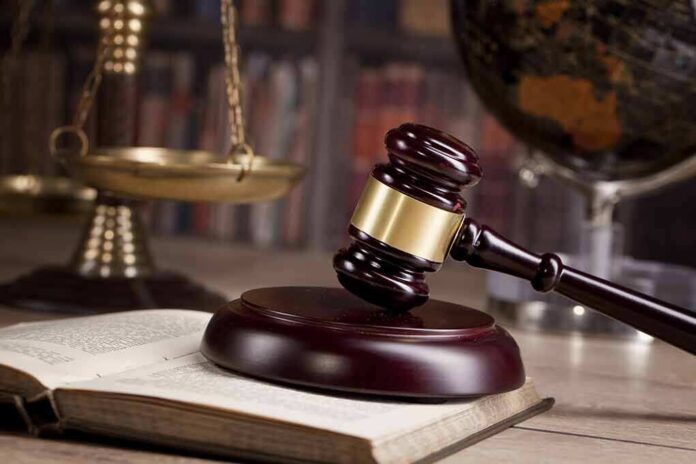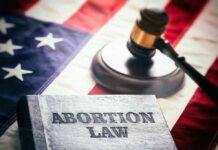
A recent ruling from the Washington appeals court regarding the removal of a federal watchdog leader has reignited debates on presidential powers.
Quick Takes
- Appeals court supports Trump’s authority to remove Hampton Dellinger.
- Ruling reignites debate on presidential removal powers over independent agencies.
- Dellinger plans to appeal to the U.S. Supreme Court.
- The decision explores the balance between executive power and oversight.
Appeals Court Controversy
The D.C. Circuit Court of Appeals recently upheld President Trump’s decision to remove Hampton Dellinger from his position as head of the Office of Special Counsel (OSC). This decision occurred amid ongoing legal battles over the extent of presidential powers. Previously, a lower court ruled that Dellinger’s removal was unlawful. The appeals court, however, issued a brief order after an expedited review.
The U.S. Court of Appeals for the District of Columbia, consisting of judges from various political backgrounds, sided with Trump’s authority in this matter. Dellinger was appointed by President Biden for a five-year term. His subsequent removal by Trump is part of broader efforts to reduce federal oversight, stirring debates on the role and independence of agencies like the OSC.
Debate on Presidential Power
This ruling underscores the ongoing debate over presidential powers to dismiss leaders of independent agencies. Trump’s administration has argued that existing protections for special counsels like Dellinger are unconstitutional. This decision challenges long-held views on the separation of powers, emphasizing the tension between executive power and necessary oversight functions.
Dellinger’s legal team insists that permitting the president to fire watchdog leaders without substantial cause could jeopardize the OSC’s crucial role in protecting whistleblowers. They highlight potential risks to governmental checks and balances if executive powers are unchecked in this manner.
Solicitor General Harris, to SCOTUS:
“Until now, as far as we are aware,” Harris wrote, “no court in American history has wielded an injunction to force the President to retain an agency head whom the President believes should not be entrusted with executive power and to…
— Dixie T 🇺🇸 🍊🍊🍊 (@DixT3) February 19, 2025
“Defendants imply that it would be too disruptive to the business of the agency to have Special Counsel Dellinger resume his work. But any disruption to the work of the agency was occasioned by the White House,” criticized U.S. District Judge Amy Berman Jackson
Future of the Office of Special Counsel
Dellinger had been actively challenging Trump’s dismissal of numerous probationary federal employees before his own removal. His efforts were further complicated by the appeals court’s decision. As the OSC’s function is to protect federal employees from unjust practices, this ruling disrupts actions aimed at reversing previous unlawful terminations, particularly those ordered by the Trump administration.
President Trump’s removal of Dellinger is not an isolated incident. It aligns with previous efforts to mitigate federal oversight by diminishing the power of watchdog agencies. Dellinger’s anticipated appeal to the Supreme Court, following a favorable ruling by U.S. District Judge Amy Berman Jackson, highlights the ongoing contention surrounding executive authority. The appeal decision could have profound implications for federal watchdog capabilities and the broader separation of powers within the U.S. government.
Sources:
- Trump can remove head of federal watchdog for now, appeals court rules
- Appeals Court Unanimously Allows Trump to Fire Special Counsel – Newsweek












